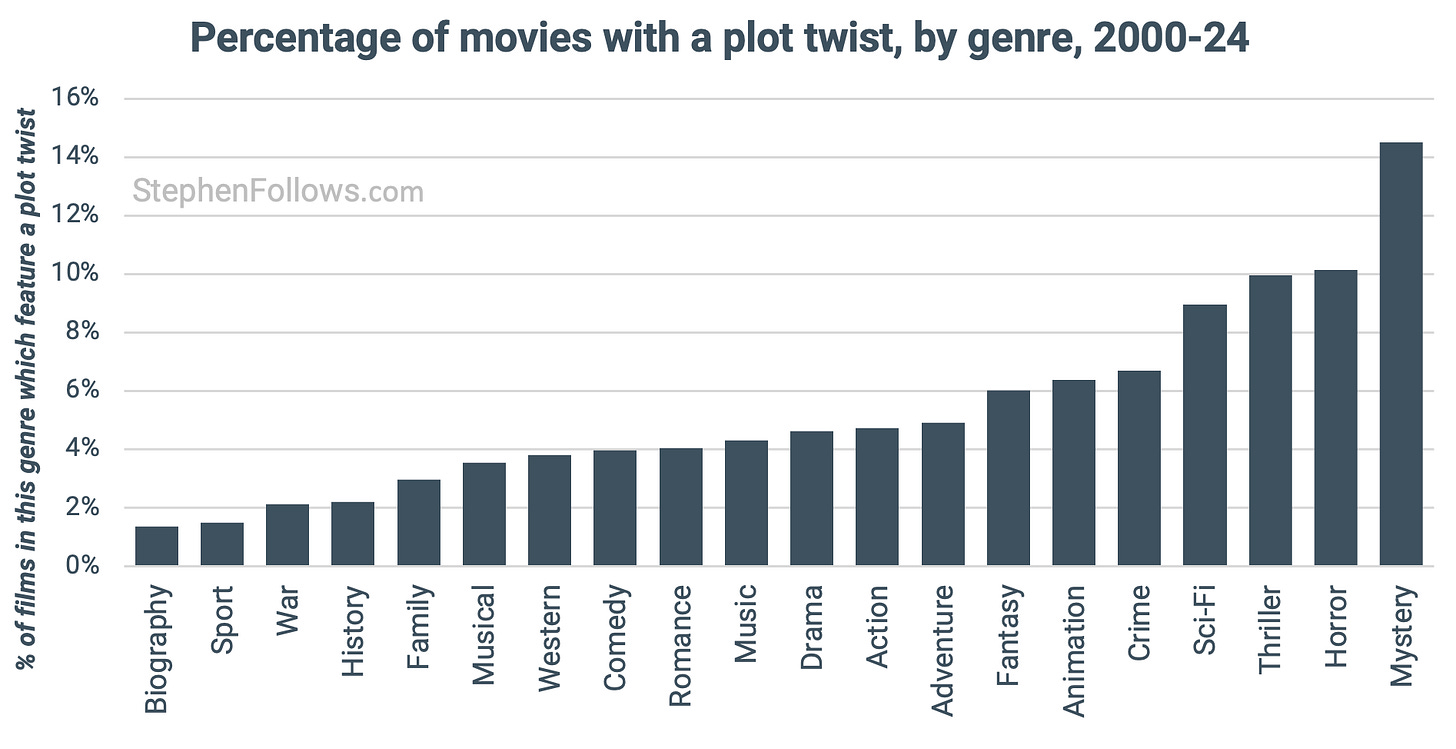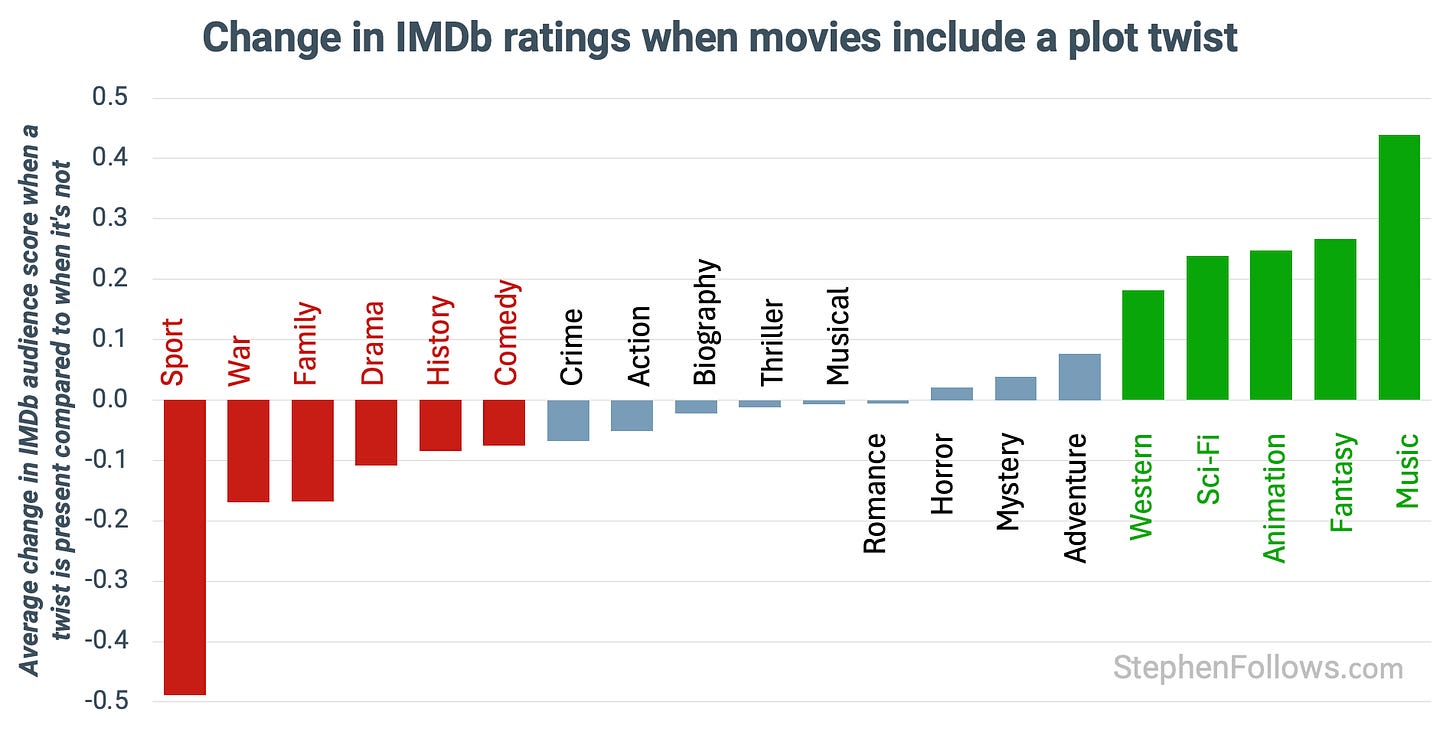Are movies with plot twists better than those without?
I studied the plots of 26,710 movies to look at where plot twists work, where they don’t, and why genre matters.
My recent article on the prevalence and types of plot twists brought on a flurry of interesting reader questions.
Unlike that article, there are no spoilers in today’s piece. (I figured that ruining 59 movies in the previous piece was quite enough for now).
I’m going to answer two of the best questions I received, namely:
What types of movies are most likely to feature a plot twist?
Does the presence of a twist improve a movie?
As a reminder, I went through the plots of 26,710 movies, identifying the 984 which contain a major plot twist.
1. What types of movies are most likely to feature a plot twist?
Some genres are far more likely than others to pull the rug out from under the audience.
Thrillers are the most twist-happy, with almost one in seven containing a major narrative reversal. Horror, Mystery and Sci-Fi follow close behind. These are all genres where uncertainty and surprise are part of the appeal, so it’s not a huge shock to see them leading the charge.
At the other end of the scale we have Biography, Sport and War - all genres which are likely to be telling true-life tales that the audience will already have some awareness of. Consequently, these are less likely to lie to the audience and more likely to play things straight.
2. Does the presence of a twist improve a movie?
To explore the link between twists and quality, I looked at all 26,710 movies and compared the average IMDb score for those with a major plot twist to those without. It’s not a perfect measure, but with this many titles, it gives us a useful baseline.
Across the full dataset, the average score was 6.26. Films with a twist averaged 6.13 and those with no twists were marginally better rated at 6.27.
But this hides the detail which matters - genre.
Among those which saw the most uplift from adding a twist were Music, Fantasy, Animations and Sci-Fi. Those which didn’t like the surprise were Sport, War, Family and Drama.
Notes
Today’s research was based around movie plots as described on Wikipedia and IMDb (if Wikipedia was too short).
We should remember that correlation is not causation, and in some cases we’re talking about a handful of movies (across the entire dataset, only 3.7% of films had twists). A twist doesn’t automatically make a film better or worse, it’s how it’s carried out that matters. The data today shows the link, but can’t explain why.





Thanks for taking the time to dig deeper into our readers’ questions! Super interesting :)
In this data set what's the difference between "music" and "musical"? Sorry if I missed that in an early post...